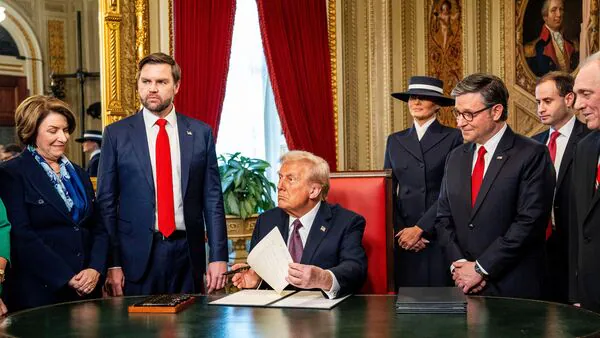In a significant legal showdown, attorneys general from 18 states, along with the District of Columbia and the city of San Francisco, filed a federal lawsuit on Tuesday to block President Donald Trump’s executive order aimed at ending birthright citizenship. The decades-old policy guarantees U.S. citizenship to anyone born on American soil, regardless of their parents’ immigration status, a right enshrined in the 14th Amendment to the Constitution.
Understanding birthright citizenship
Birthright citizenship has been a cornerstone of U.S. immigration law, granting citizenship to individuals born within the country’s borders, even if their parents are non-citizens or undocumented immigrants. Proponents argue that this practice is a clear constitutional mandate under the 14th Amendment, ratified in 1868, which declares: “All persons born or naturalized in the United States and subject to the jurisdiction thereof, are citizens of the United States.”
However, Trump’s executive order, issued late Monday, challenges this interpretation. The order denies automatic citizenship to children born in the U.S. to mothers who are in the country illegally, fathers who are not U.S. citizens or lawful permanent residents, or those born to parents temporarily in the U.S. The new policy is set to take effect on February 19, sparking a fierce legal battle.
Swift opposition from states and legal experts
The order has met with widespread opposition. New Jersey Attorney General Matt Platkin criticized the move, stating, “The president cannot, with a stroke of a pen, erase the 14th Amendment.” Similarly, Connecticut Attorney General William Tong, the first Chinese American to hold the position, emphasized the personal significance of the lawsuit, as he is a U.S. citizen by birthright.
The lawsuit, joined by states including California, Massachusetts, New York, and Michigan, argues that Trump’s action undermines constitutional protections and oversteps presidential authority. Legal experts anticipate a lengthy court battle, which could ultimately reach the Supreme Court.
A polarizing issue with significant implications
The controversy surrounding Trump’s executive order has reignited debates about immigration policy and constitutional interpretation. While the administration argues for stricter citizenship criteria, opponents fear the move undermines fundamental rights and creates uncertainty for millions of Americans.
As the legal process unfolds, the nation watches closely, aware of the far-reaching implications for immigration policy, constitutional law, and the rights of future generations.








 India
India












